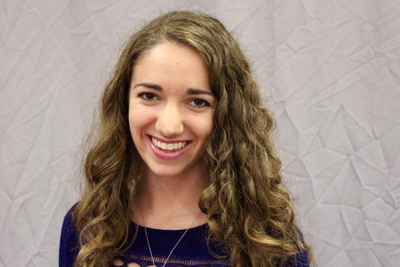I Can’t Fast On Yom Kippur —And That’s Nothing To Be Ashamed Of

Yom Kippur is not a fun day for anyone. The “hanger” is real, caffeine withdrawal is always worse than I remember it to be and I’m pretty sure every non-Jewish person I follow on Instagram posts more #foodporn photos that day than any other day of the year.
However, when people tell me I am “lucky” because I can no longer fast, they could not be more wrong.
Last year, mere weeks before the High Holidays, I was diagnosed with a medical condition that makes it dangerous for me to fast. I was living in the heart of the Old City of Jerusalem, still learning how to take care of a body that felt unfamiliar to me. Couple that with the fear of judgment and feeling “not Jewish enough” because I can no longer observe the same traditions I had been following my whole life, it seemed like my entire identity was being called into question.
With the High Holidays now around the corner, I find myself facing the same dilemma that I did last year: Do I engage in surreptitious snacking and drinking, or do I observe Yom Kippur in my own way with pride? This year, however, I realize that I am not and never was alone.
When I was a student at University of Delaware, friends and others I knew felt shame at not being able to fast. They were embarrassed to admit that they needed to eat breakfast with their morning medications or had to drink water because they were fighting off an illness. Conversations happened in hushed tones, students whispering to one another as though confessing the “sin” of having a snack to safely make it through the day. However, students held these conversations outside of the Hillel building, as though the topic was so taboo it could not be held in a Jewish space.
How would things have been different if we felt comfortable sharing our experiences openly? We seemed to forget that we are a community because of our differences, not despite them.
Yom Kippur is a day of fasting, not a day about fasting. The Torah tells us that on this day, “you shall practice self-denial” (Leviticus 16:29) for this is the day of atonement. Rabbis later interpreted this to mean to refrain from food and drink, and this is the tradition that has been passed down for generations.
However, eating or drinking on Yom Kippur for your health is not the “sin” many of us grew up thinking it to be. In fact, if fasting on Yom Kippur endangers your life, Jewish law and tradition tells us we must not fast. Instead, we should take care of ourselves and observe the holy day in other ways more suited to us and our needs.
This year, I am thrilled to be starting my first job as an Ezra Jewish Education Specialist as a Springboard Fellow with Hillel. As someone students will look up to, my goal is to model wellness throughout the year. Right now, this means opening dialogue around the fact that I am not fasting this Yom Kippur.
I am no longer embarrassed that I cannot observe the Holy Day in the same way that many of my peers do. I am proud that I am taking care of myself by observing Yom Kippur in other ways. By setting the intention to observe the day in a way that respects both my needs and the meaning behind the Holy Day, I may even get more out of Yom Kippur than I ever have in the past.
And the next time internalized ableism causes me to question my practices, I will tell myself the same thing I teach students on campus: We must kindle the flame of our own body and soul if we have any hopes of helping others do the same.
By taking care of myself, during the High Holidays and beyond, I will not only model healthy behavior, but I will also be able to better support my students throughout their own journeys — and if that’s not the best part of my job, then I don’t know what is.